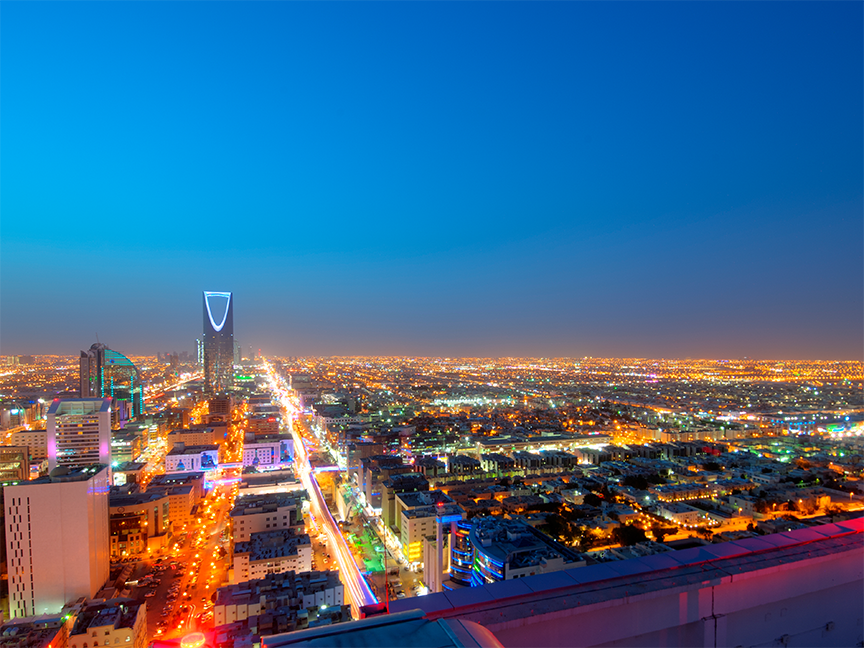
Most transportation today relies on hydrocarbon fuel sources. And despite dreams of a green energy revolution, that’s not likely to change in the near future, according to one of America's foremost experts on Saudi Arabia.
The world’s biggest oil exporter will continue to exert an outsized influence on crude prices because King Salman bin Abdulaziz Al Saud is willing to keep production capacity stalled — but ready to ramp up at a moment’s notice — depending on where the market is headed, says David Rundell, a longtime U.S. diplomat in Saudi Arabia.
That’s important, Rundell says, because demand for oil isn’t going to decline in the near future. Projections of massive growth in electric cars in the developed world — evidenced in part by the Clean Energy Ministerial’s EV30@30 campaign, with a target of at least 30% new electric vehicle sales by 2030 — mask an inescapable reality.
“While the U.S. and Europe are in a position to move away from the internal combustion engine, most places where growth is happening are not,” Rundell says. “They’re all on bicycles and scooters, hoping to get a Hyundai. It’s going to be a long time before they get a Tesla.” The International Energy Agency predicts that demand for oil worldwide will continue to grow until at least 2030.
Rundell also points to an enduring demand for petrochemicals critical to manufacturing. Moreover, freight transportation presents some of the biggest challenges when it comes to turning away from hydrocarbon fuels.
“These are forms of transportation that have energy density requirements, where you produce so much energy per pound of fuel, and batteries are not very good at that yet,” Rundell says. “It’s going to be a long time before you can fly a plane or power an ocean-going vessel by battery, because it will take up too much space. It’s somewhat the same for big trucks, too.”
Outsize Influence
All are reasons why Saudi oil production will continue to play a critical role in the price of gas. While the U.S. relies on Saudi Arabia for only 7% of its total petroleum imports (with Canada providing 52% and Mexico 11%), Saudi Arabia was the world's biggest exporter of crude petroleum ($145 billion worth) in 2019, according to the Observatory of Economic Complexity (OEC). The exports mostly go east, with 72% of Saudi crude oil and related products sold to Asian countries, notably China and Japan. Further, Saudi oil producer Aramco, which falls under the control of King Salman, continues to pursue a strategy of fine-tuning production according to market price, with the aim of keeping prices at a desirable level.
“The Saudis play a pivotal role in energy markets because they’re the swing producer,” Rundell says. “They adjust production on a monthly basis to try to keep the market supplied and prices stable.” This doesn’t always work perfectly, as was demonstrated during the early days of the COVID-19 pandemic, when gas prices plummeted due to suddenly decreased demand. But generally, the idea is to keep the price stable.
“They do this, not because they like us, but because it’s in their interests for oil to remain part of the global energy mix for a long time,” he says. “They have a lot of oil, and they want people to use it. They learned this in the ‘70s when the price went too high, and they got greedy, and demand went down.”
There’s a cost, but the Saudis are willing to bear it, Rundell says. The country keeps a daily surplus of about 2 million barrels of oil, which costs billions of dollars to store, but can quickly bring it to market with one call from the King.
“Even Putin has limited power over oil production," he says. "But King Salman can make one call to Aramco. He has a lot of influence.”
The Saudis’ ability to influence the market will only increase as other oil producers come under pressure to embrace zero-carbon targets, thereby diminishing alternative sources for crude, Rundell says.
Because ultimately, he adds, a net-zero carbon future doesn’t mean an oil-free world.







